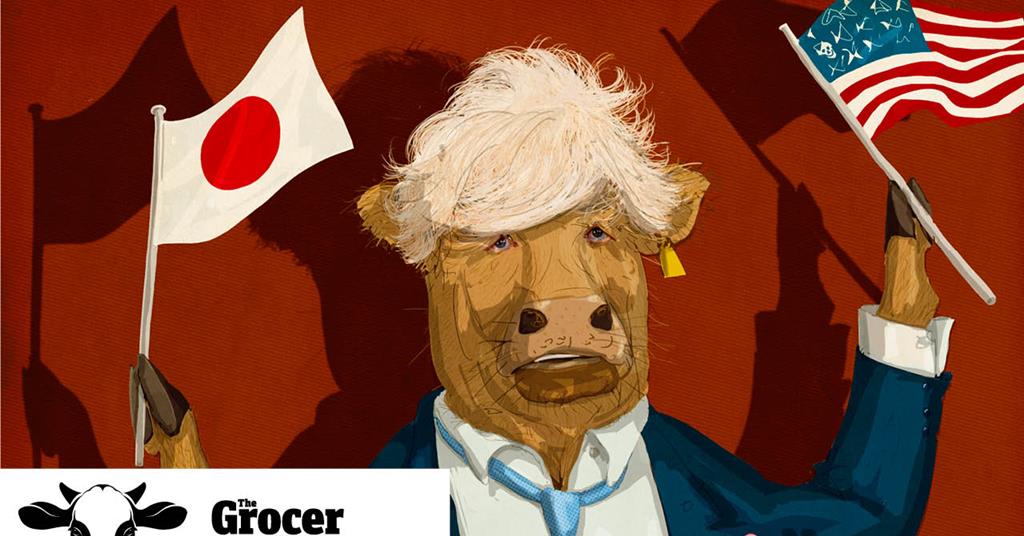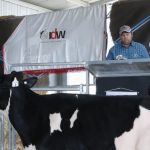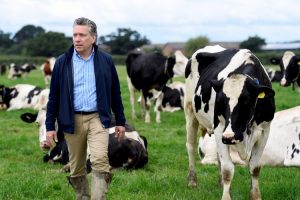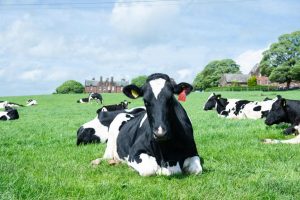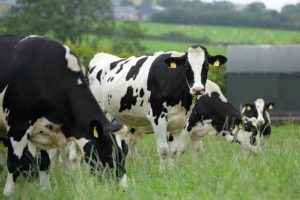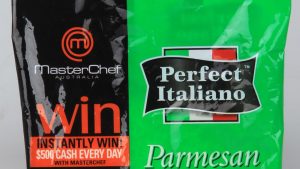
And yet ministers still haven’t allayed suppliers’ fears over post-Brexit exports to EU markets. It’s the industry’s overwhelming concern. If no deal is reached by the end of the year, exports to the EU will become immediately subject to full WTO tariffs – described by Dairy UK as “cripplingly high”. They could lead to a collapse in sales overnight, the trade body warned.
The UK sold £1.3bn of dairy products to the EU in 2019, according to HMRC data. That’s more than three times the UK dairy exports to the rest of the world combined. While some producers have sought to develop alternative overseas markets, many claim the one on their doorstep is nigh-on irreplaceable.
“No-deal is going to be very, very painful on both sides,” predicts Rich Clothier, MD at Wyke Farms. In addition to the financial impact of a no-deal Brexit, he is concerned that a fallout between Downing Street and Brussels will lead to animosity on both sides. “The EU is our biggest customer, and you don’t want to p*** off your customers, do you? It’s not a good strategy for business.”
Clothier is therefore calling on extra support from government to help dairy suppliers maintain some of their sales. “If there was one key thing I could ask it would be if we end up paying tariffs, will the government help us by supporting things like tastings and point of sale material in those regions to try and maintain the sales we have currently?” he says.
“It’s no good for the government just to be in a no-deal and cut everyone loose, because that will be a serious, serious problem.”
While it is feared that no-deal will be devastating for large parts of the industry, the lack of clarity from government has caused equal frustration among suppliers. The UK’s departure from the EU customs union has been inevitable since the Brexit withdrawal agreement became law last year, and will bring with it unavoidable friction from 1 January 2021 on the transit of goods.
As a product of animal origin, all dairy heading to the EU will require an export health certificate signed by a vet before leaving the UK. Companies are scratching their heads as to how they will handle the additional costs of around £150 per order – and government has yet to reassure them that the infrastructure is even in place to provide the certificates.
”We can’t build investment plans, trading strategies or growth strategies without knowing what Brexit means”
European buyers are feeling the jitters as much as UK firms, as they look to ensure supplies are still in place in January. Some are asking British companies to accept Brexit-related expenses, such as customs costs, in contracts for next year.
If UK exports take a hit there will be no shortage of producers in other countries looking to fill the hole, predicts Bernard Condon, global ingredients division MD at Ireland’s Ornua. “The UK currently exports about 70,000 tonnes of cheddar. In a hard Brexit situation, not all of that 70,000 tonnes would be exported, which no doubt would open up opportunities for the Irish.”
Major disruption to international trade is not unheard of in dairy markets. In 2014, Vladimir Putin responded to EU sanctions on Russia for invading Ukraine by imposing a ban on EU dairy products. It led to short-term disruption as a flood of cheese intended for Russia entered world markets, causing prices to crash.
This could be set to happen again, predicts Condon, but hopefully not for long. “Demand for cheddar is likely to be the same after 1 January. The supply for cheddar is going to be the same after 1 January. So, the trade flows just have to stabilise out globally, and supply and demand should still be in balance. But there’ll be a heck of a lot of disruption over the short-term.”
He at times appears almost sanguine about what promises to be a period of immense disruption, but Condon is not shy of calling out the impact Brexit is already having on Ornua. “We can’t build investment plans, trading strategies or growth strategies without knowing what Brexit means. So just saying ‘Brexit means Brexit’ doesn’t mean a whole lot for us.”
American markets
When it comes to markets beyond Europe, the government seemingly has its heart set on a free-trade deal with the US. It could mark something of a change in recent fortunes for UK dairy businesses with interests across the Atlantic.
In October 2019, the Trump administration imposed tariffs on EU goods in retaliation for illegal subsidies to Airbus. The impact has been felt widely across UK dairy, pushing down cheese exports to the US by almost a third in July 2020 on the same month last year, at a cost of £1.2m to the industry, according to HMRC.
“They simply put their foot on the throat of the singer,” says Hamish Renton, MD of food consultants HRA Global. “You still get a sound out, you can still hear the note, but they really suppress volumes.”
Some have managed to avoid the worst of the tariffs by importing in bulk at a lower tariff before processing their goods within the US, he explains, though this does not make sense for those businesses shipping small and often irregular volumes. “Only once you have predictability of demand, you know what kind of tonnages your talking about, and it gets to about to 50 or 100 tonnes, then it costs out and makes sense.”
Alan Jenkins, director at Somerdale, says the tariffs’ greatest challenge came from their initial shock. “That [tariff] increase happened while a lot of our product was already on the water. We’d already sold it at one price and then it had to be entered at 25% more, so we ultimately had to sell it at a loss.”
Now time has passed, Jenkins says sales have seen minimal falls. “I think the US government was fairly smart. They knew it wasn’t going to kill trade, but it did put some money in their pockets.”
“The US has a bad reputation for cheese, but people who think that is the norm are mistaken”
A US-UK free trade agreement would solve most of the issues posed by the tariffs for UK exporters. But it is unwise to think they would be entering an uncompetitive market for premium speciality cheese, Jenkins warns.
“The US has a bad reputation for cheese, but people who think that is the norm are mistaken. Our biggest competition is from what’s being made in the US,” he says. “In the UK, we’ve historically made the best and so we think we must still be the best. But in the US, they don’t have that, so they are really pioneering and striving to make really good cheese.”
Stateside producers are not just a challenge for exporters. If the UK reaches a trade deal with the US, it is highly possible American cheese will start appearing in British grocers. “The dairy industry is very focused on our export opportunities, but it does cut both ways,” says Renton.
Negotiations are also ongoing with Canada as the UK seeks to replace the EU’s trade pact. “The Canadians are probably the ones to watch because they have some fantastic high-end cheddar in terms of what’s exported,” Renton adds. “If we do a free-trade deal with Canada, we’re going to be eating a lot more Canadian cheese.”
Asian opportunities
Booming middle class populations across Asia, Africa and South America, combined with a growing demand for dairy products, have led many British exporters to seek opportunities beyond North America.
Other markets being eyed include Japan, with which the UK has now secured its first trade deal since leaving the EU. It largely replicates the existing EU-Japan free trade agreement, with some enhanced access for UK food and drink.
While it promises a step in the right direction for UK exporters, the Chartered Institute of Marketing’s food, drink & agriculture president, John Giles, insists they must not get carried away. “Having market access is one thing. Having a market presence is another thing altogether. Japan is still a notoriously difficult market. And the amount of dairy products they actually import from the UK are fairly modest,” he says. “Now with a free trade deal, there’s an opportunity to increase those. That’s the whole point of a free trade deal. But is Japan the answer to all the British dairy sector’s challenges ahead? I doubt it.”
“New Zealanders are the world champions at dairy exports. Although the Danes, Dutch and Irish are often not too far behind”
To capitalise on global opportunities, it is vital UK dairy builds a coherent export strategy, something largely lacked to date, explains Giles. Most suppliers are more focused on fulfilling domestic demand than taking on the time-consuming and often expensive job of building opportunities overseas, leaving the UK with some serious catching up to do if it wants to compete with other global dairy exporters, he adds.
“Lots of these markets look very attractive for UK dairy exporters. But by that virtue, it also means they’re very attractive to other people as well.”
New Zealand in particular has come to dominate a number of global dairy markets. “New Zealanders are the world champions at dairy exports. Although the Danes, Dutch and Irish are often not too far behind,” Giles says.
The UK will likely eye new markets such as Indonesia given its huge volumes of dairy imports. “But when you get out there,” says Giles, “you find out that the New Zealanders have been there for 35 years. Fonterra have got three or four factories and they have 5,000 people in country working for them. They’ve got exchange visits back to New Zealand; they’ve got a free trade deal. While nothing is impossible, they will take a bit of shifting.”
Lucy Randolph, senior export manager at AHDB, agrees New Zealand’s position in the market is well-established, but rather than simply offering stiff competition, she believes it can be leveraged to the UK’s benefit. Many countries, such as China, have historically not had dairy in their diets, she explains, so a major feature of introducing new products involves education as much as marketing.
“In a way we’ve let NZ do a bit of the hard work and then we can come in, having already had the groundwork laid for us,” Randolph explains. “If you’re early into the market, you often need big sums of money to be able to market it and to actually educate that market on the product and how to eat it.”
In other more established markets, however, such as India and the UAE, the difficulties become orientated around the border with complex paperwork, labelling, and bureaucracy all acting as possible deterrents.
“Why be beholden to four or five key retailers in the in the UK when you can probably hit 400 to 500 retailers throughout the world?”
“India is probably the biggest dairy consumer in the world, but the regulations make it so difficult to get food in,” says Stephen Jones, MD at Somerdale. “Getting your paperwork approved sometimes comes with a certain amount of ‘persuasion’.”
Somerdale has navigated the complexities and risks associated with accessing these markets to build operations in over 50 countries, but many small suppliers may struggle to overcome the same hurdles.
“It’s sometimes not the right place for a small company to take risks, but even the big companies sometimes don’t want to, because it’s fiddly,” says Jones. “A big factory churning out thousands of tonnes of cheddar will probably say, if I can sell that into Tesco seven days a week, that’s my market, even though the margins are tight.”
But for his colleague Alan Jenkins, the opportunity is clear: “Why be beholden to four or five key retailers in the in the UK when you can probably hit 400 to 500 retailers throughout the world?”
Viral hit: how the pandemic hurt dairy exports
Unsurprisingly, the hit to European markets from coronavirus is what really hurt UK dairy exports during the pandemic.
The EU made up almost 80% of the UK’s foreign dairy sales in 2019 – worth more than £1.3bn. But in the first six months of this year, sales fell by more than £100m, according to official customs data, as restaurants and cafés shut across the continent.
It contributed to an overall decline of 12% on the same period last year as the effects rippled across the world. Butter suffered in particular, falling by 26%.
Though as Stephen Jones, MD at Somerdale confirms, there have been upsides. “Whether it’s in America, China or Australia, foodservice has been devastated. However, people still need to eat, so supermarket business has been booming,” he says.
Nevertheless, the overall picture is gloomy for UK exporters. British dairy sales to the US, for example, fell by more than a quarter; sales to China by more than a third. Australia is one of the few significant markets to buck the trend, up 8%.
Both business and government had hoped the direction of travel would be in the opposite direction by now, as the UK struck on its agenda to reach new trade deals around the world.
While the new Japan trade deal offers a potential boon, with enhanced access for food and drink exports, some fear the pandemic will put most trade negotiations on the back burner.
“Covid has thrown a kind of awful curveball at the world,” says Alan Jenkins, director at Somerdale. “A trade deal really isn’t that important to a country when they’re trying to fight a lot of people dying.”
But when crises strike, opportunity often follows. The strain the pandemic placed on food supplies has provided a renewed focus on addressing the UK’s dependence on global imports.
In dairy, the UK is a net importer to the tune of more than £1bn, marking a possible opportunity for British companies to develop their market share.
“I think one of the outcomes of Covid will be to look to reduce our over dependence on input products and start shortening supply chains,” said John Giles, the Chartered Institute of Marketing’s food, drink & agriculture president.
“That all plays well to UK dairy producers. But to do that you’ve got to be able to invest in extra processing capacity and storage capacity, distribution, marketing. It doesn’t just happen.”
